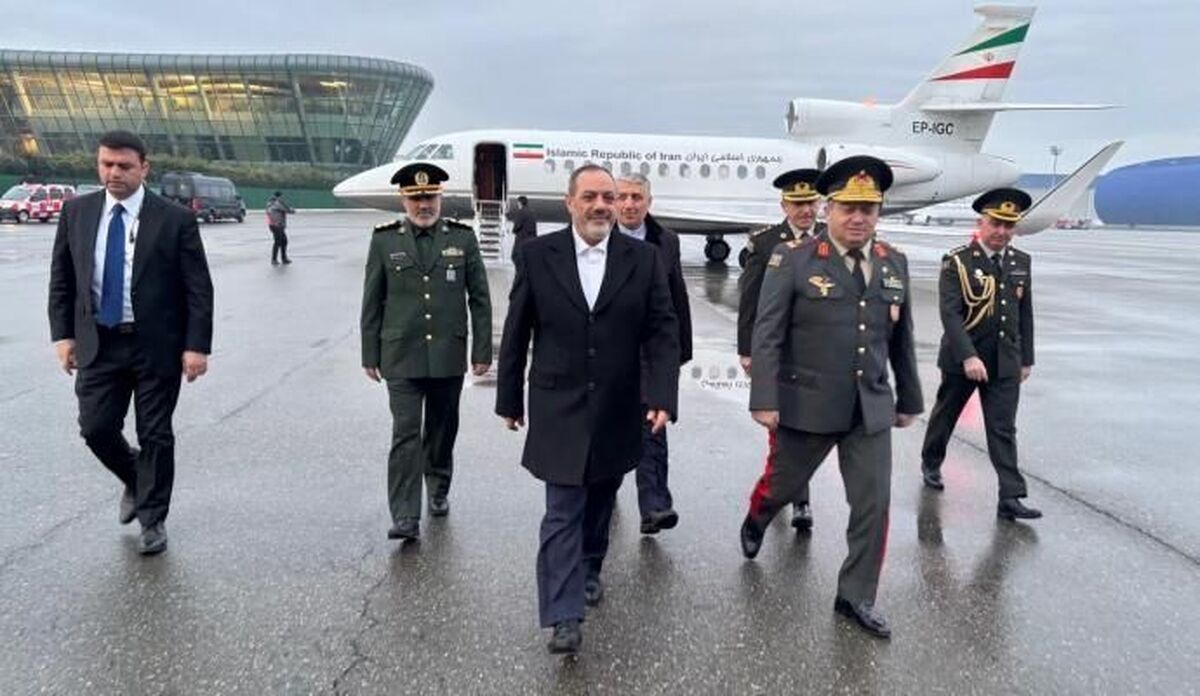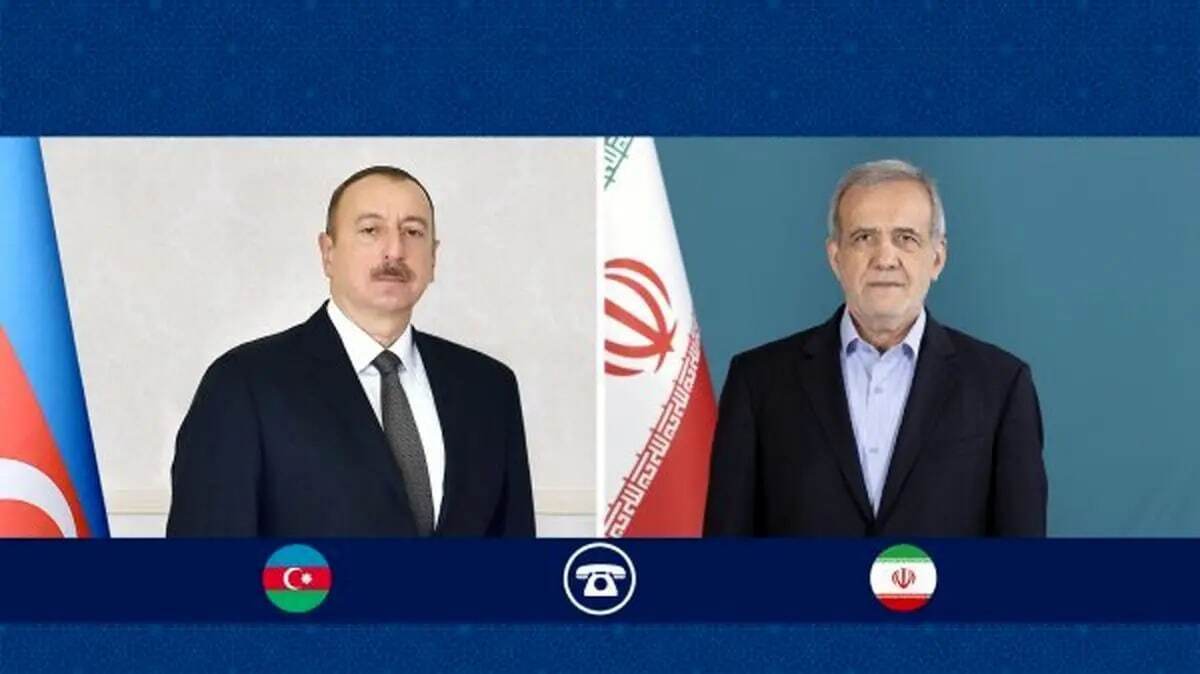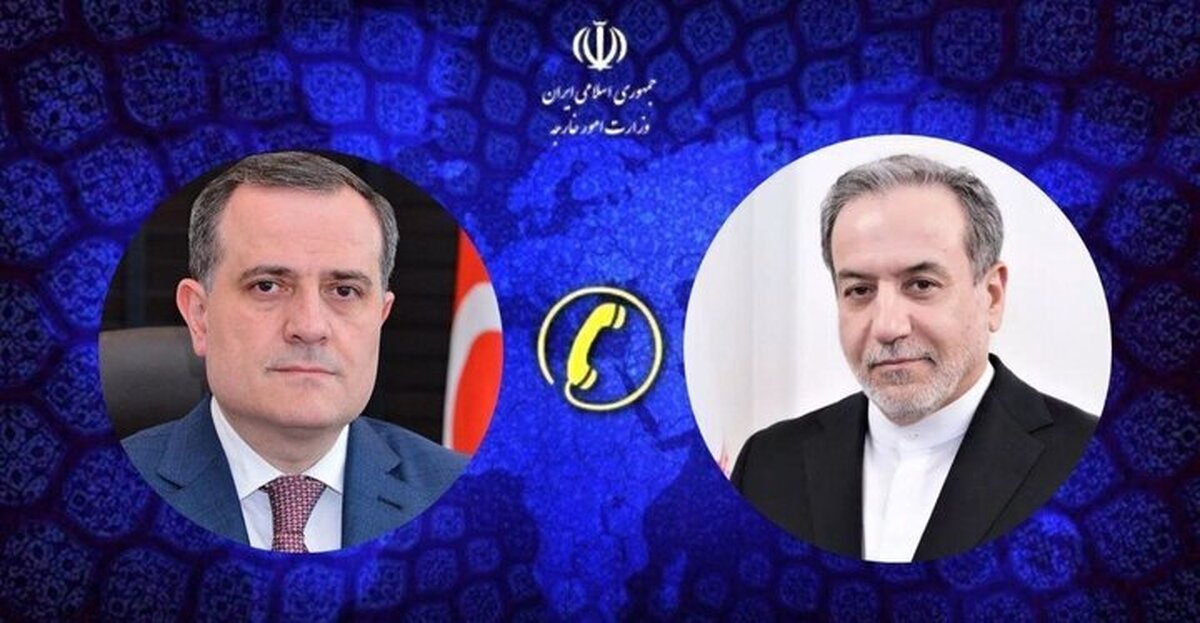
Iran Looks to Boost Economic Ties With Azerbaijan
EghtesadOnline: Iran Chamber of Commerce, Industries, Mines and Trade is scheduled to hold a videoconference forum titled “Iran-Azerbaijan Republic Commercial Capacities and Opportunities” in Tehran on Feb. 6.
The event, which will be attended by Hossein Pir-Moazzen, the head of Iran-Azerbaijan Chamber of Commerce, representatives of chambers of commerce from other Iranian provinces and officials and businesspeople active in trade between the two countries, will focus on opportunities, risks and challenges facing bilateral trade, the latest regional developments, cooperation capacities and possibilities for expanding trade and financial ties between the two neighbors, ICCIMA’s news portal reported.
Minister of Industries, Mining and Trade Alireza Razm-Hosseini has appointed Governor General of East Azarbaijan Province Mohammad Reza Pourmohammadi as the head of Trade Expansion Taskforce with Azerbaijan Republic, IRNA reported.
Pourmohammadi has been entrusted with the responsibility of coordinating with different Iranian governmental bodies and private sector businesses to expand non-oil trade ties and cooperation for the reconstruction of Azerbaijan’s areas devastated after the South Caucasus conflict.
Iran was Azerbaijan’s top export market in the Persian Gulf region in 2020, according to Azerbaijan’s State Customs Committee.
Official statistics show that Iran, the UAE and Oman were the top three export destinations of Azerbaijan among the Persian Gulf countries.
The volume of export with Iran stood at $38.4 million, while it amounted to $10.7 million with the UAE and $2.2 million with Oman.
Tehran Hosted 14th Joint Commission in Jan.
Meetings of the 14th Iran-Azerbaijan Economic Commission were held in Tehran in January, co-chaired by Iran’s Economy Minister Farhad Dejpasand and First Deputy Prime Minister of Azerbaijan Shahin Mustafayev.
Mustafayev led a 14-strong delegation to attend meetings held in the Iranian capital city.
The joint commission explored ways of boosting bilateral cooperation in different fields, including transportation, energy, industry, trade, telecommunications, new technologies, health and treatment, tourism, agriculture, bank and insurance.
Among agreements reached between the two sides was a memorandum of understanding on development of rail cooperation, based on which cargo transit via railroad between the two countries should increase by 2 million tons per year.
In 2020, 480,000 tons of cargo were transported between Iran and Azerbaijan, Mehr News Agency reported.
Mustafayev also met with Minister of Roads and Urban Development Mohammad Eslami and exchanged notes regarding the completion of Astara-Astara railroad, which is part of the International North-South Transport Corridor, as well as the creation of a new terminal at Astara border crossing and the construction of a transit bridge that connects Baku-Astara Highway to Ardabil-Astara-Rasht Highway.
“Next month [February] will see the conclusion of an MoU in this regard and the start of the terminal and bridge projects,” the news portal of the Ministry of Roads and Urban Development quoted Eslami as saying.
“Enhancing the movement of Iranian truckers heading to Azerbaijan and opening up opportunities for Iranian companies to engage in the reconstruction of areas stricken by 2020 Nagorno-Karabakh war were other topics of discussions with the neighboring country’s senior officials,” he added.
According to the Azerbaijan’s official, 13 meetings have been held between the presidents of Iran and Azerbaijan over the past seven years and several documents have been signed between the two neighboring countries.
Mustafayev added, “It is our major responsibility to implement these agreements.”
He referred to the 18% growth in goods transportation via North-South Transport Corridor over the past year and said, “Transit and exchange of cargo via Astara-Astara railroad also increased by 25% over the past year.”
The previous meeting of the joint economic commission was held in Baku on March 19, 2019.
INSTC is a major transit route designed to facilitate the transportation of goods from Mumbai in India to Helsinki in Finland, using Iranian ports and railroads, which the Islamic Republic plans to connect to those of Azerbaijan and Russia.
The corridor will connect Iran with Russia’s Baltic ports and give Russia rail connectivity to both the Persian Gulf and the Indian rail network.
This means goods could be carried from Mumbai to the Iranian port of Bandar Abbas and further to Baku. They could then pass across the Russian border into Astrakhan before proceeding to Moscow and St. Petersburg, before entering Europe.
INSTC would substantially cut travel time for everything from Asian consumer goods to Central Eurasia’s natural resources to advanced European exports.
Astara Port, with an area of 55 hectares, connects Iran and Azerbaijan. It is located 550 kilometers from Turkey and 1,400 kilometers from Persian Gulf coasts. It is the only northern port linked to Azerbaijan’s land border and the only one located near the neighboring country’s railroad and the whole of the European rail network.
The rail freight terminal in the Iranian town of Astara is continuing to strengthen its significance on the International North-South Transport Corridor.
The Astara rail freight terminal is located 1.4 kilometers from the border with Azerbaijan. It started transshipment operations in February 2018 when the first freight train crossed the border on the Astara (Azerbaijan)–Astara (Iran) rail junction.
The 10-km extension of Azerbaijan’s 1,524-mm gauge rail network runs for around 8.5 km in Azerbaijan and 1.5 km in Iran, including an 82.5-meter-long, 8-meter-high and 11.8-meter-wide bridge over Astarachay River that forms the border.
It was built at a cost of $60 million, financed by Azerbaijan, including a 35-hectare freight transshipment facility that will be operated by Azerbaijan’s national rail operator ADY under a 25-year BOT (build-operate-transfer) agreement with Iran’s national railroad IRIR.
The new line forms part of the International North-South Transport Corridor that will link northern Europe with the Indian Ocean upon completion.
"The north-south transit route, which the two countries are currently participating in for the implementation of the Rasht-Astara Railroad project, means a more convenient, cheaper and shorter route for the two countries, regional states and even for Asia, Europe and Africa, indicate that our cooperation is in the interest of the peoples of the region and the world,” said President Hassan Rouhani at the Azerbaijan-Iran Business Forum in March 2019.




